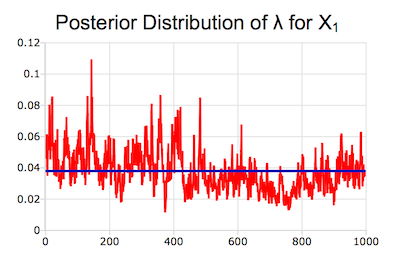
The Bayesian Estimation Tools package provides a suite of tools for estimation and analysis of a number of pre-packaged models. The internal Bayesian models provide quickly accessible, full-stage modeling including data generation, estimation, and post-estimation analysis. Modeling flexibility is provided through control structures for setting modeling parameters, such as burn-in periods, total iterations and others.
Platform: Windows, Mac, and Linux
Requirements: GAUSS/GAUSS Engine/GAUSS Light v13.1 or higher

